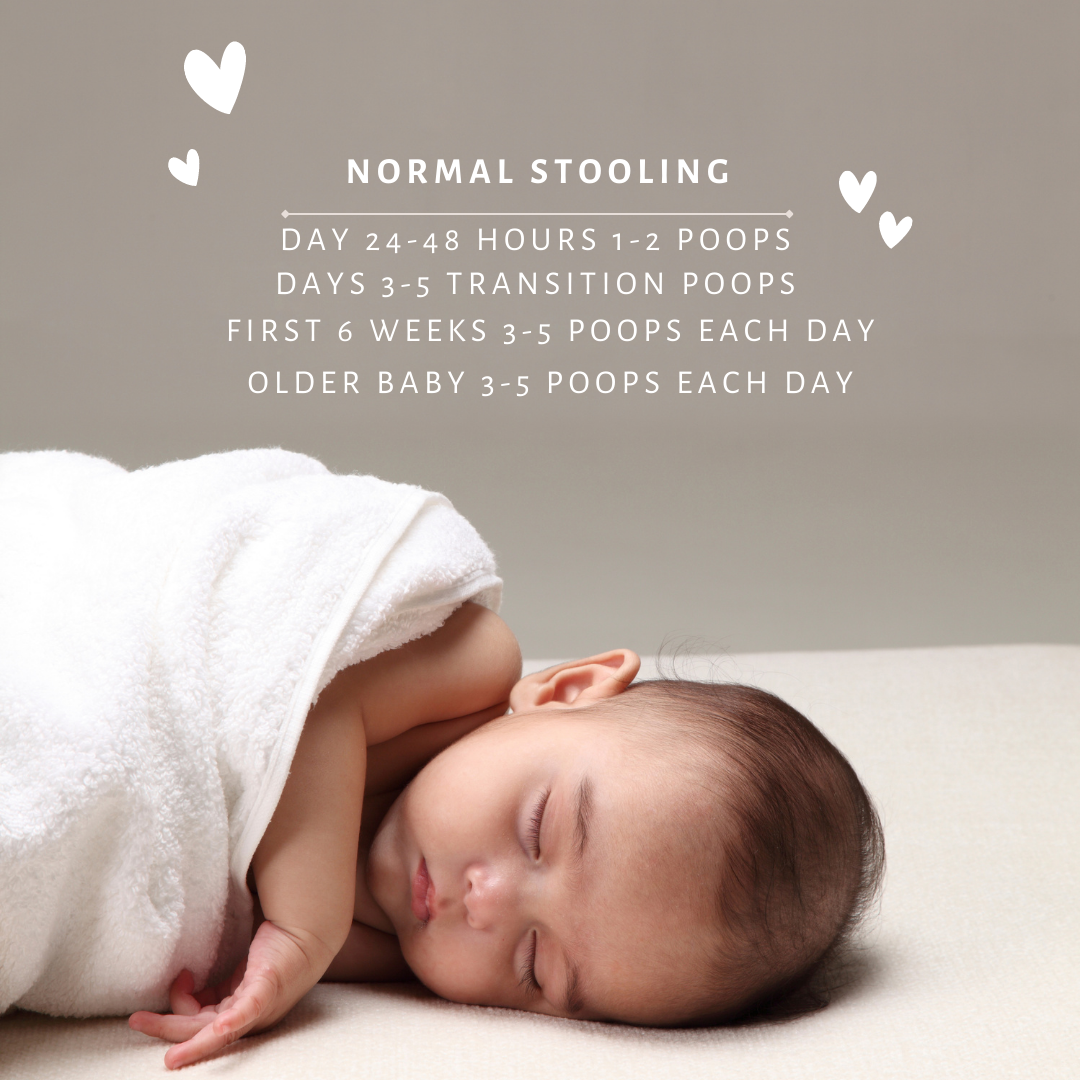How Much Should My Baby Poop?
/How much should my baby poop in the first 24-48 hours?
Your newborn should poop within 48 hours of birth. Most babies stool shortly during or shortly after birth. The first stool is dark brown and sticky. It’s made up of a thin hair called lanugo, which covers a baby’s body and falls off during the final weeks of pregnancy. It also contains amniotic fluid, mucous, bile, and cells that have been shed by the skin and intestines. You can apply an unscented non-mineral based oil or lotion on your baby’s bottom to prevent the meconium from sticking. If your baby doesn’t stool within the first 48 hours, call your newborn’s healthcare provider immediately.
How many stools should my newborn have in the first 1-4 days?
After your baby has pooped all the meconium, it may take a day for your baby to stool again. Your breastmilk comes in on the evening of the third day after birth, sometimes longer if you had a cesarean or a lot of bleeding. If you’ve had a baby before it may come in on the second day. Doing lots of cuddling and skin to skin contact with your newborn will help your milk come in. After the milk has come in and you feel fullness in your breasts, your baby’s stools will transition from dark brown and sticky, to lighter brown, green, and then to mustard yellow. Your baby should poop 1-2 times each day and have lots of wet diapers.
How much should my newborn poop after my milk comes in?
After your milk comes in, the baby should have at least 3-5, up to 6-8 mustard colored, yellow, or brown stools a day. The stools should smell like buttered popcorn and may have a curd like appearance. For a poop to count it should be at least the size of your index finger and thumb touching together in the ok sign. It’s very important that your baby stools 3-5 times a day for the first 6 weeks postpartum. If your baby is not stooling this much, find a lactation consultant and talk with your pediatrician. With many breastfeeding challenges, small problems can lead to big ones if not dealt with promptly. Your baby may not be removing enough milk from your breast, or may have difficulty moving their bowels. Babies who are born prematurely have more difficulty moving their bowels than full term babies. A lactation consultant can help you get to the root of the problem. If the problem is due to difficulty moving bowels, strategies such as infant massage, exercises, or warm compresses can help.
Another impact on infant stooling is their gut health. We know that probiotics go through breastmilk. Mothers who are exposed to antibiotics during labor or postpartum may find that taking a quality probiotic and eating a diet rich in onions, garlic, leeks, dandelion, jicama, or Jerusalem artichokes which feed good bacteria helps their infant’s gut health to improve as well as their own.
Infant Massage is a great strategy to help your baby deal with gas and help them move their bowels
How much should older babies poop?
Many people are told that after 5-6 weeks it’s normal for newborns to store up stool and only have a bowel movement every few days, even only once per week, so long as it’s a very large bowel movement. Jennifer Tow is a lactation consultant who specializes in infant gut health and she has another perspective. Human milk is full of complex sugars that can only be digested by the bacteria in the infant’s gut. This bacteria grows after birth from the mother’s milk and results in soft and regular bowel movements. If the stool is few, green, watery, or the baby has skin issues, colic, difficulty sleeping, poor appetite and growth then consider seeking a provider who is educated in gut health and healing. Improving the mother’s gut health will improve the baby’s. You can read more about it on her website here.
Has your baby had difficulty pooping? We’d love to hear your comments!




